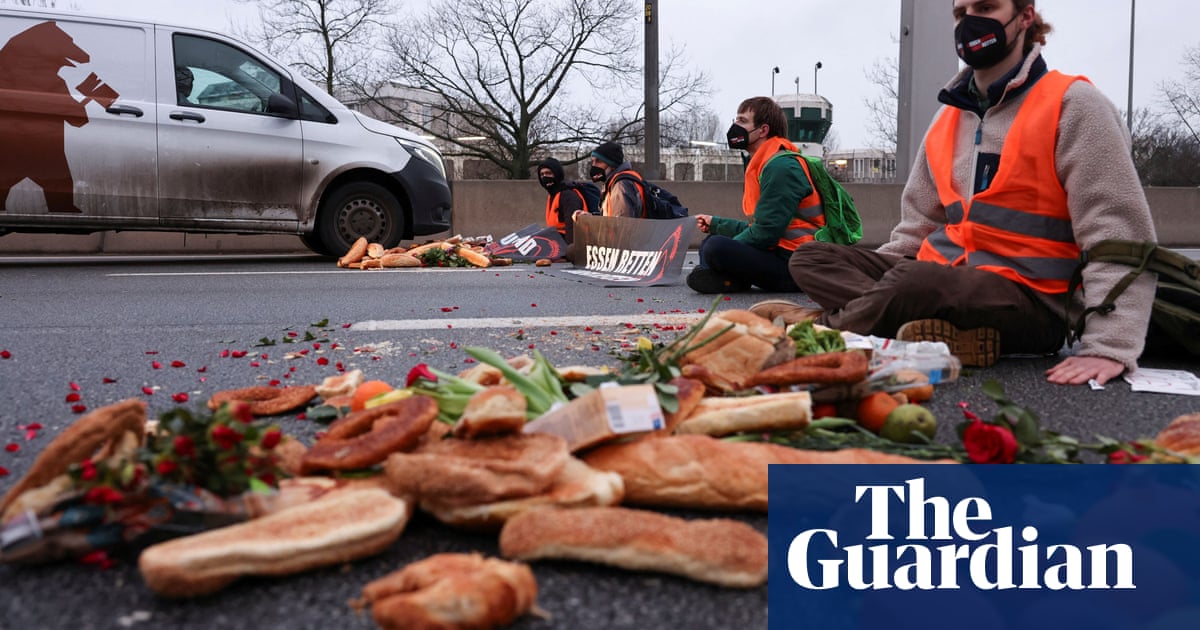
More than a billion meals are thrown away every day, in poor countries as well as rich ones, despite more than 730 million people living in hunger around the world.
About a fifth of food is wasted, sometimes through profligacy or poor planning, sometimes from a lack of access to refrigeration or storage, according to the UN Food Waste Index report, published on Wednesday, at a global cost of about $1tn a year.
Households are responsible for most of the world’s food waste – about 60% of the 1bn tonnes of food thrown away annually. But commercial food systems are also a substantial contributor: food services accounted for 28% of waste, and retail for about 12% in 2022, the latest data available.
These figures exclude an additional 13% of food that is lost in the food supply chain, between harvest and market, often from rejection or spoilage of edible food.
Not only is this waste squandering natural resources, it is also a big contributor to the climate and biodiversity crises, accounting for close to 10% of global greenhouse gas emissions and displacing wildlife from intensive farming, as more than a quarter of the world’s agricultural land is given over to the production of food that is subsequently wasted.
Inger Andersen, the executive director of the UN Environment Programme, which wrote the report in conjunction with the UK’s Waste and Resources Action Programme (Wrap), described food waste as “a global tragedy”, and contrasted this with the fact that a third of people face food insecurity, unsure of where their future meals will come from.
Andersen said: “Millions will go hungry today as food is wasted across the world. Not only is this a major development issue, but the impacts of such unnecessary waste are causing substantial costs to the climate and nature.”
Few countries have plans in place to reduce food waste and most fail to include it in their proposals for reducing carbon emissions.
The UN now has reliable data from more than 100 countries, which has enabled researchers to say with certainty that food waste is a global problem, afflicting developing countries as well as the profligate rich world. More food appears to be thrown away in hot countries, perhaps reflecting the shorter time it takes for food to spoil in higher temperatures, a lack of access to refrigeration and higher consumption of fresh food with more inedible parts.
Poorer households also tend to throw away food at a rate not much lower than those with higher incomes: they were responsible on average for about 7kg per person of waste less a year than richer households. This may reflect many factors, including a lack of access to adequate refrigeration and storage, reliance on lower quality food and a lack of time to make nutritious meals.
Harriet Lamb, the chief executive of Wrap, called for countries to take action. “We need greater coordinated action across continents and supply chains,. Whether philanthropic, business or governmental, actors must rally behind programmes addressing the enormous impact wasting food has on food security, our climate and our wallets.”
Around the world, about 79kg of food is wasted per person annually. But in some countries, including the UK, Australia, Indonesia, Mexico and South Africa, food waste has been cut substantially since 2007. Japan has cut its food waste by nearly a third, and the UK by about 18%.
Lisa Moon, the chief executive of the Global FoodBanking Network, called on retailers and food producers to work more closely with food banks to reduce waste and tackle the hunger and cost of living crises.
She said: “Food banking is an important and unique model in reducing food loss and waste, because food banks not only work with farms, manufacturers, retailers and food services to rescue wholesome food, but they also make sure that food ends up on the tables of people facing food insecurity.
“We must continue to invest in community-led solutions, as well as advance stronger food waste policies to build food systems that nourish people and the planet.”
In the UK, the government has announced £295m of funding for local councils to organise weekly collections of food waste, aimed at composting and preventing food waste from going to landfill, where its rotting generates methane, a powerful greenhouse gas. Evidence shows that collecting food waste separately can encourage people to reform their habits, as they see clearly how much of what they buy is going into the bin.
Article From & Read More ( Millions go hungry as a billion meals binned every day, says UN report - The Guardian )https://ift.tt/YI3wZRS
Entertainment
No comments:
Post a Comment